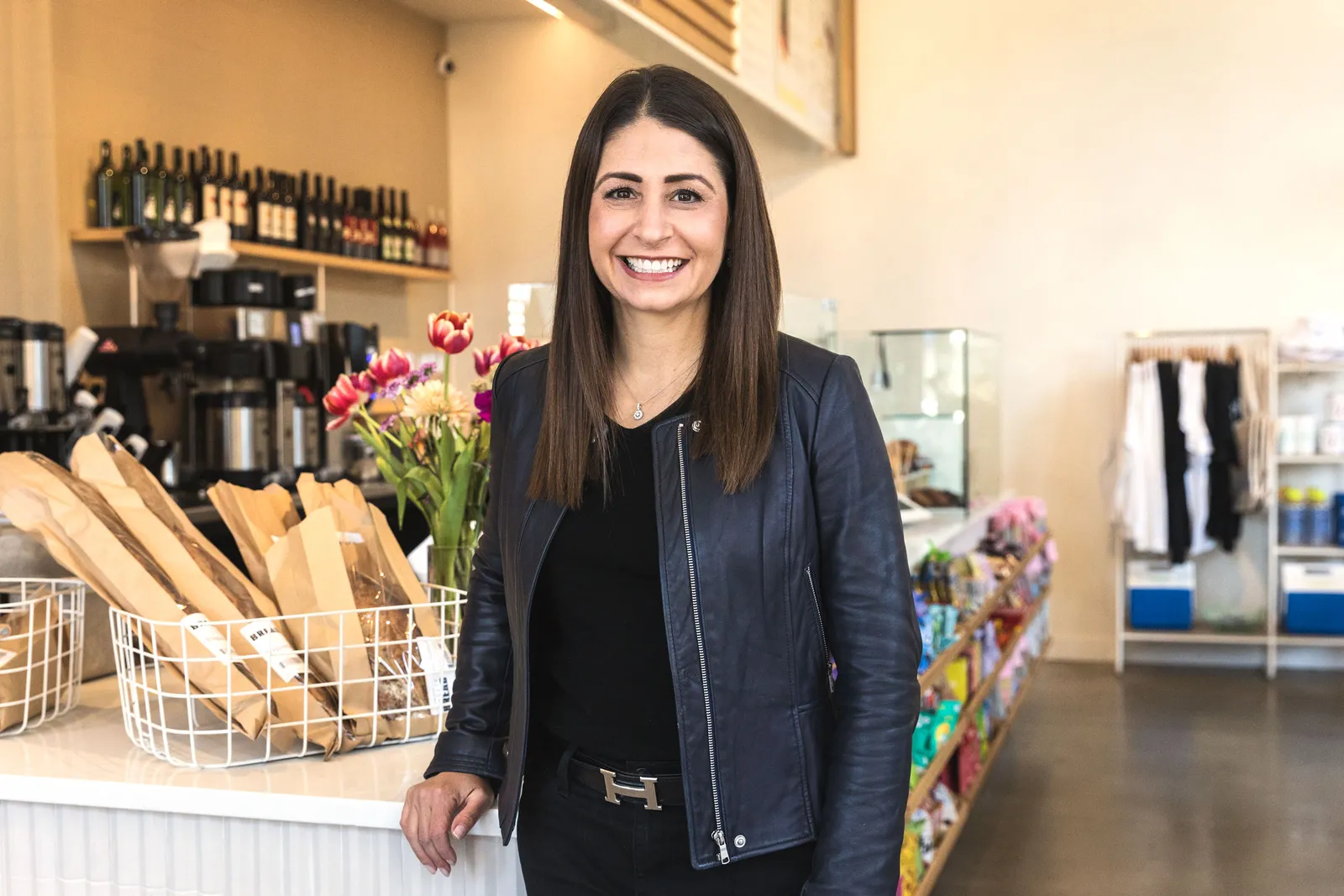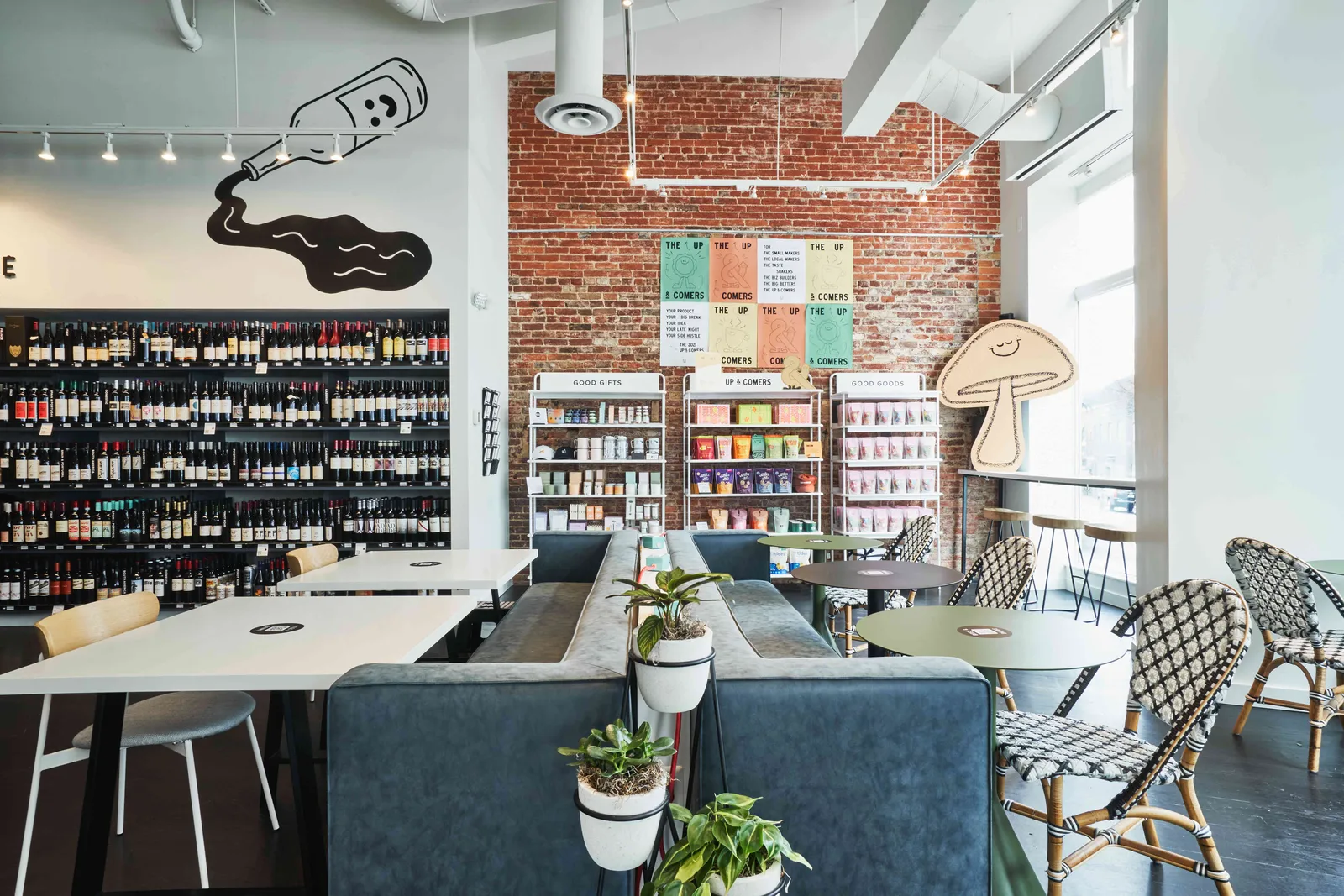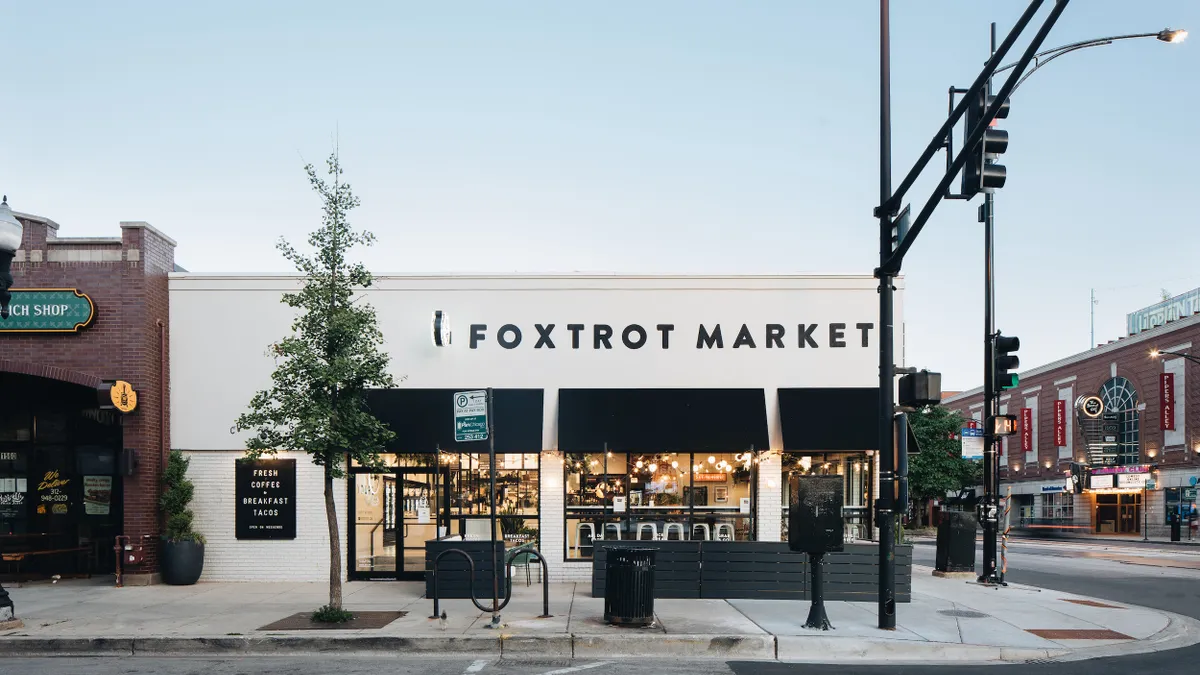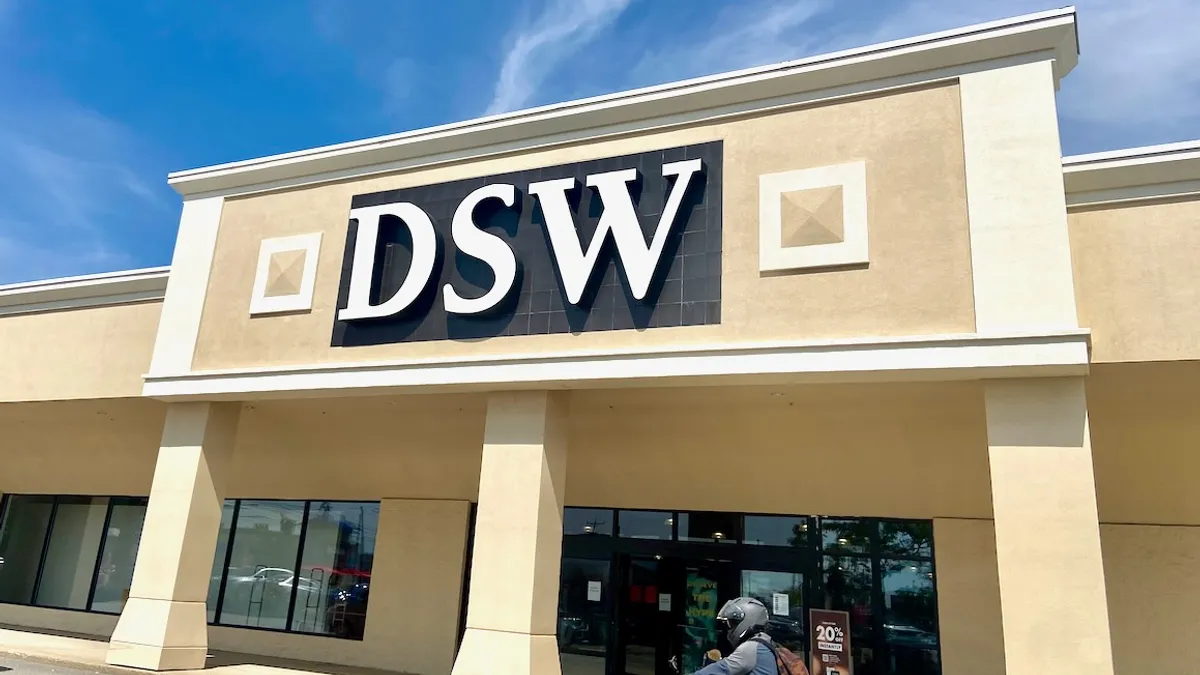While some c-store operators are just beginning to find the balance between premium foodservice, mobile technology and traditional convenience offerings, boutique retailer Foxtrot has spent years focusing on each of these elements. Now, the 26-location retailer is contemplating what’s next.
“I think it’s fair to say we’ve solidified ourselves as the modern cafe and convenience store,” Liz Williams, CEO of Chicago-based Foxtrot, said in an interview. “There’s not many businesses where you can lean into a cafe, a convenience store and the e-commerce elements… there’s so much growth ahead.”
Williams, who joined Foxtrot as its first president and CFO in June 2022, was promoted to CEO in April as founder Mike LaVitola stepped into the chairman role. The executive recently sat down with C-Store Dive to discuss Foxtrot’s retail and foodservice goals, the company’s e-commerce evolution, technology-focused initiatives, the c-store labor market and much more.
This interview has been edited for length and clarity.
C-STORE DIVE: What are your top priorities for Foxtrot as you move through your first year as CEO?
WILLIAMS: We like to say that we're the modern cafe and convenience store. And so as I think about growth, I think about growth in both of those areas. So in our cafe, we serve delicious breakfast tacos, coffee, all types of great beverages in the morning hours. But we also have a really wide menu where we are serving evening options as well. So how do we grow our experience throughout the day?
In the late afternoon or early evening, into the evening hours, customers can get a glass of wine. We're testing pizza in Chicago right now. So just growing that cafe experience throughout the day, and while continuing to innovate in the morning as well.
The other piece, as we move into the convenience store and the market side, is our prepared foods. The growth that we've seen in our grab and go — it used to be just salads and bowls, and now you can get dinner options, you can get a burrito dish that you just pop into the oven, you can get grilled chicken. In the last couple weeks, we’ve launched more snacking options in prepared foods, some of the fun bento-box-type formats. We also have been expanding our sushi offering as well.
And then when we switch focus to more of the market side, the convenience side, I see huge growth potential in our single-serve beverages. That is a category that's just exploded lately. So many fabulous options, from different water options to energy drinks, to juices — just a huge proliferation of drink options today. And we really pride ourselves in having a lot of the up-and-coming brands, and then some of the brands that have been around for many, many years.
How do you plan to use your restaurant-industry leadership experience in your role at Foxtrot?
WILLIAMS: All of the fundamentals I learned in the restaurant business are transferable. Customers want craveable options, they want it fast. So just continuing that focus and that prioritization with our culinary team.
And then the fundamentals of convenience feed value. Customers want wonderful options, but at affordable prices. So that certainly is fundamental as well. Whether it's in the quick-serve category or whether it's in the category that we're playing in, the fundamentals are the same.

How many private label products does Foxtrot currently have? How does the company plan on expanding this portfolio?
WILLIAMS: There's definitely plans to expand. We continue to grow our private label business, I'd have to get back to you on an exact number. But it's a great part of our business.
We've taken the approach of leaning into more about house-brand philosophy, where we're creating brands that sit alongside national brands. Customers would probably have to really look hard to realize that it's a Foxtrot brand. We really think through where there is a place in the category something might be missing, and we can bring a unique Foxtrot angle to it, and then we develop a brand.
How are signups for Foxtrot’s new membership program faring vs. expectations? How does membership impact how a customer shops at Foxtrot? And any plans to expand/evolve that membership program?
WILLIAMS: Our membership program is great. We've shown that there's a lot of benefits and value to being a Foxtrot member. So when you sign up initially, you're a member. And when you spend more than $100 a month, you're part of our Members+ cohort.
One of the best benefits is when you become a Member+, you get free delivery, and that's a really valuable perk for those members. They get free gift wrap, and then they get exclusive access to new products, and some of our some of our sale events. Of course, the Member+ also gets a reduced price for some of their coffee drinks as well.
Like I mentioned earlier, we're really leaning into our evening program with our wine and some of the food. You’ll see a lot of membership benefits over the summer which lean into happy hour, whether it's in [Washington] D.C. or Dallas or Austin.
It can always grow even more, but we’re really pleased with what we're seeing in terms of members joining the program.

How is Foxtrot looking to evolve its e-commerce capabilities?
WILLIAMS: We were one of the first that actually started as an e-commerce company and then moved into retail. I feel like lately, our retail has kind of caught up with some of our e-commerce capabilities. And certainly as people's needs have shifted, there are customers that still order delivery to their home, but we see a lot of those customers now in person, which we love.
The other piece of e-commerce which we're super excited about the growth of has been the cafe pickup. As our cafe business has grown, everyone wants to skip the line. That's a phenomenon that lots of folks in our industry have taught customers. And so when you can go into our app, make your purchase in the morning online and all you do is walk in and it's sitting out ready to go, that's a big win. We’re seeing a lot of growth in using the app, order ahead, walk in, pick it up — particularly with our cafe food and drink.
Technology-focused initiatives like frictionless checkout and electric vehicle charging are running wild in the c-store industry. What has been your strategy around these two areas, which I’m sure the company has at least had discussions over?
WILLIAMS: On the vehicle charging, because our format really has been the corner store, very few of our locations even have the parking capability for something like that. If a consumer had to charge a car and wanted a third place to come in and hang out and meet someone for a cup of coffee, our stores are certainly the place to meet up. But we really haven't thought through how to use our stores at this point for charging.
On the other question as it relates to cashierless checkout: Because of our hospitality nature and the fact that we are a modern cafe and convenience store, there's a personable part of it. There’s a smile, there's a greeting, there's a bit of an interchange.
We just care so much about our environment — we spend a lot of time on the aesthetic of the store and the look and the feel and make it a very welcoming place that we haven't really given much thought to the cashierless checkout. If you really want that, you would get the things you want on your phone, and then you just walk in and pick it up. That would be maybe our way of approaching it.
Labor is a huge issue throughout the c-store industry — specifically, finding and retaining employees for the long haul. How is Foxtrot approaching labor this year as more stores begin popping up around the country?
WILLIAMS: I firmly believe getting a great store manager, and developing and investing in that store manager, leads to that store manager building a really strong team. We've focused on putting a lot of operational process, discipline and new ways of working in place, whether it's an enhanced supply chain, whether it's enhanced technology, just doing some things that are in our central support center that can better support the store managers so that they can better build a team.
Everyone knows that the labor market has been tight over the last couple months, and it's competitive. And so we just tried to create a culture that is really inviting and gives team members the ability to be shopkeepers, while also giving them the support to do it in a really thoughtful way.
Any new markets or formats that Foxtrot is looking to expand upon?
WILLIAMS: We opened our first store in Austin just a couple months ago. And it has been fabulous. Really great reception. And we've got three other sites that are coming online over the summer that we're really excited about.
And then, of course, we’ll continue to grow in Dallas; the D.C., Maryland, Virginia area; and then in Chicago. [In Chicago], we've started to look for more suburban locations. We still love the city, we're still developing in the city, but we've gotten a lot of pull to come up to the suburbs.
And then we're just starting to look at other new markets across the U.S., and thinking through what that looks like. In the last year we took a bit more of a measured approach to say, let's make sure we really are ready for the next phase of growth.
We definitely pulled back a little bit from where we thought we would be in new units. And like I said earlier, we focused on many of the operational enhancements and making our support better from the center. We focused on that, and I am seeing a lot of those great results. So starting to think through potentially going to some new markets in the next couple of years.
























